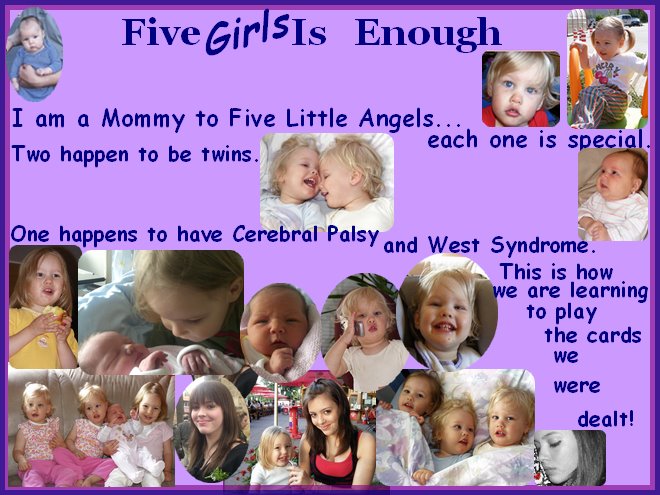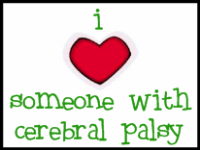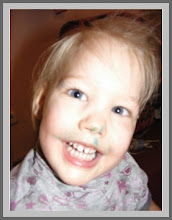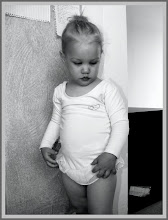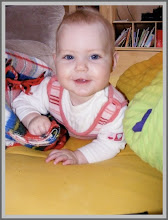JOB DESCRIPTION: You will be expected to 'live in' at place of work and provide cleaning, cooking, shopping, laundry, psychotherapeutic, nursing, teaching, entertainment and secretarial services for other inmates.
HOURS: You will be 'on call' 24 hours a day, 385 days a year, especially for psychotherapeutic and nursing services. But your regular work will take between 50 and 100 hours per week1, depending on: age, health and number of children or disabled people in household; standards of work demanded by employer; size and condition of house.
PAYMENT: An allowance is available, known as 'housekeeping money' when provided by employer and 'family allowance' or 'child benefit' when provided by the State. This money is intended to cover essential expenses such as cleaning utensils and food. There is no payment for your labour as housewife. Three out of four housewives have no money of their own and were described as 'financially battered' in a 1978 report in the UK. In 1975, with inflation at 26 per cent, only 25 per cent of UK housewives received an increase in housekeeping money from their employers. Seventy per cent of husbands in the UK, 40 per cent in West Germany and 30 per cent in Switzerland do not tell their wives what they earn.
HOLIDAYS: Your duties will be eased if your holiday is taken in a hotel, but you will often be expected simply to do your normal work in strange surroundings while other household members enjoy their leisure. Research in Germany found only 21 per cent of housewives had a holiday the previous year, compared with 86 per cent of employers (husbands).
SATISFACTION: You may find your duties even more monotonous, fragmented and under continuous time pressure than assembly-line workers6. Seventy per cent of housewives in one study said they were 'very' or 'severely' dissatisfied with the nature of their work. Two-thirds of working-class housewives and three quarters of middle-class housewives would like an extra job outside the home - largely because of frustration with their work in the home.
WORK HAZARDS: You will be 154 per cent more likely to die of cancer than women in paid employment. Between 40 and 80 per cent of housewives in Bracknell New Town, UK, have an alcohol problem8. One in five Aotearoan housewives seek help for psychiatric symptoms - more than any other occupational group - and Australian women consume 70 per cent of all minor tranquilizers in the country. Insomnia, palpitations, headaches, dizziness, nightmares and anxiety ('housewives' syndrome') are much more common among housewives than women in paid employment.
JOB SECURITY: Your job will be continuously and increasingly threatened by divorce. In the US one in six marriages ended in divorce in 1940. Today two out of every three marriages are predicted to end in divorce'. One year after divorce the divorced housewife's standard of living drops by 73 percent, while that of her ex-employer rises by 42 per cent.
REDUNDANCY PAYMENTS: If made redundant (by divorce) you will only have a one-in-seven chance of being awarded alimony (money for your personal support) in the US. Though 60 per cent of redundant housewives have children, 60 per cent of ex-employers contribute no money at all to the upkeep of those children. Two-thirds of ex-employers are ordered (by divorce courts) to pay less in support of their children than they owe in monthly car repayments. Nearly all keep up their car payments but over half are delinquent with child support. Unpaid child support totals $4 billion a year in the US.
FRINGE BENEFITS: Your board and lodgings will usually be provided, but you will normally be expected to share a bedroom (and bed) with your employer.
Source:http://www.newint.org/issue181/occupation.htm
Friday, July 25, 2008
Saturday, July 12, 2008
WELCOME TO HOLLAND
by
Emily Perl Kingsley.
c1987 by Emily Perl Kingsley. All rights reserved
I am often asked to describe the experience of raising a child with a disability - to try to help people who have not shared that unique experience to understand it, to imagine how it would feel. It's like this......
When you're going to have a baby, it's like planning a fabulous vacation trip - to Italy. You buy a bunch of guide books and make your wonderful plans. The Coliseum. The Michelangelo David. The gondolas in Venice. You may learn some handy phrases in Italian. It's all very exciting.
After months of eager anticipation, the day finally arrives. You pack your bags and off you go. Several hours later, the plane lands. The stewardess comes in and says, "Welcome to Holland."
"Holland?!?" you say. "What do you mean Holland?? I signed up for Italy! I'm supposed to be in Italy. All my life I've dreamed of going to Italy."
But there's been a change in the flight plan. They've landed in Holland and there you must stay.
The important thing is that they haven't taken you to a horrible, disgusting, filthy place, full of pestilence, famine and disease. It's just a different place.
So you must go out and buy new guide books. And you must learn a whole new language. And you will meet a whole new group of people you would never have met.
It's just a different place. It's slower-paced than Italy, less flashy than Italy. But after you've been there for a while and you catch your breath, you look around.... and you begin to notice that Holland has windmills....and Holland has tulips. Holland even has Rembrandts.
But everyone you know is busy coming and going from Italy... and they're all bragging about what a wonderful time they had there. And for the rest of your life, you will say "Yes, that's where I was supposed to go. That's what I had planned."
And the pain of that will never, ever, ever, ever go away... because the loss of that dream is a very very significant loss.
But... if you spend your life mourning the fact that you didn't get to Italy, you may never be free to enjoy the very special, the very lovely things ... about Holland.
Emily Perl Kingsley.
c1987 by Emily Perl Kingsley. All rights reserved
I am often asked to describe the experience of raising a child with a disability - to try to help people who have not shared that unique experience to understand it, to imagine how it would feel. It's like this......
When you're going to have a baby, it's like planning a fabulous vacation trip - to Italy. You buy a bunch of guide books and make your wonderful plans. The Coliseum. The Michelangelo David. The gondolas in Venice. You may learn some handy phrases in Italian. It's all very exciting.
After months of eager anticipation, the day finally arrives. You pack your bags and off you go. Several hours later, the plane lands. The stewardess comes in and says, "Welcome to Holland."
"Holland?!?" you say. "What do you mean Holland?? I signed up for Italy! I'm supposed to be in Italy. All my life I've dreamed of going to Italy."
But there's been a change in the flight plan. They've landed in Holland and there you must stay.
The important thing is that they haven't taken you to a horrible, disgusting, filthy place, full of pestilence, famine and disease. It's just a different place.
So you must go out and buy new guide books. And you must learn a whole new language. And you will meet a whole new group of people you would never have met.
It's just a different place. It's slower-paced than Italy, less flashy than Italy. But after you've been there for a while and you catch your breath, you look around.... and you begin to notice that Holland has windmills....and Holland has tulips. Holland even has Rembrandts.
But everyone you know is busy coming and going from Italy... and they're all bragging about what a wonderful time they had there. And for the rest of your life, you will say "Yes, that's where I was supposed to go. That's what I had planned."
And the pain of that will never, ever, ever, ever go away... because the loss of that dream is a very very significant loss.
But... if you spend your life mourning the fact that you didn't get to Italy, you may never be free to enjoy the very special, the very lovely things ... about Holland.
Wednesday, July 9, 2008
You know you have a child with special needs when...
by Carol AnCel
* You compare ER's instead of grocery stores.
* You compare your child's oxygen saturations.
* You view toys as "therapy".
* You don't take a new day for granted.
* You teach your child HOW to pull things out of the cupboard, off the bookcases, and that feeding the dog from the table is fun.
* The clothes your infant wore last fall still fit her this fall.
* Everything is an educational opportunity instead of just having plain old fun.
* You cheer instead of scold when they blow bubbles in their juice while sitting at the dinner table (that's speech therapy), smear ketchup all over their high chair (that's OT), or throw their toys (that's PT).
* You also don't mind if your child goes through the house tooting a tin whistle.
* You fired at least 3 pediatricians and can teach your family doctor a thing or two.
* You can name at least 3 genes on chromosome 21. (You really know your toast if you can spell the full names correctly)
* You have been told you are "in denial" by at least 3 medical or therapy professionals. This makes you laugh!
* You have that incredible sinking feeling that you've forgotten SOMETHING on those few days that you don't have some sort of appointment somewhere!
* You get irritated when friends with healthy kids complain about ONE sleepless night when they're child is ill!
* Your vocabulary consists of all the letters OT, PT, SP, ASD, VSD, IFSP, etc.
* You keep your appointment with the specialist even though a tropical storm is raging because you just want to get this one over with.....you waited 8 months to get it.....and besides, no one else
will be there!
* Fighting and wrestling with siblings is considered PT.
* Speech therapy occurs in the tub with a sibling.
* When potty training is complete, you take out a full page public notice in the Washington Post.
* When the Doctors/Specialist/Hospitals etc. all know you by your name without referring to your chart.
* You keep a daily growth chart.
* You calculate monthly statistics for the number of times your child vomits, and did this for more then one year.
* You phone all your friends when your child sits up for the first time, at age two.
* With a big smile on your face you tell a stranger that your four year old just started walking last week.
* Her medical file is several inches thick and growing.
* You have a new belief.....that angels live with us on earth.
* You compare ER's instead of grocery stores.
* You compare your child's oxygen saturations.
* You view toys as "therapy".
* You don't take a new day for granted.
* You teach your child HOW to pull things out of the cupboard, off the bookcases, and that feeding the dog from the table is fun.
* The clothes your infant wore last fall still fit her this fall.
* Everything is an educational opportunity instead of just having plain old fun.
* You cheer instead of scold when they blow bubbles in their juice while sitting at the dinner table (that's speech therapy), smear ketchup all over their high chair (that's OT), or throw their toys (that's PT).
* You also don't mind if your child goes through the house tooting a tin whistle.
* You fired at least 3 pediatricians and can teach your family doctor a thing or two.
* You can name at least 3 genes on chromosome 21. (You really know your toast if you can spell the full names correctly)
* You have been told you are "in denial" by at least 3 medical or therapy professionals. This makes you laugh!
* You have that incredible sinking feeling that you've forgotten SOMETHING on those few days that you don't have some sort of appointment somewhere!
* You get irritated when friends with healthy kids complain about ONE sleepless night when they're child is ill!
* Your vocabulary consists of all the letters OT, PT, SP, ASD, VSD, IFSP, etc.
* You keep your appointment with the specialist even though a tropical storm is raging because you just want to get this one over with.....you waited 8 months to get it.....and besides, no one else
will be there!
* Fighting and wrestling with siblings is considered PT.
* Speech therapy occurs in the tub with a sibling.
* When potty training is complete, you take out a full page public notice in the Washington Post.
* When the Doctors/Specialist/Hospitals etc. all know you by your name without referring to your chart.
* You keep a daily growth chart.
* You calculate monthly statistics for the number of times your child vomits, and did this for more then one year.
* You phone all your friends when your child sits up for the first time, at age two.
* With a big smile on your face you tell a stranger that your four year old just started walking last week.
* Her medical file is several inches thick and growing.
* You have a new belief.....that angels live with us on earth.
Wednesday, July 2, 2008
Bad Words
Momma always said, "If you don't have something nice to say, don't say anything at all." I guess I should just keep my mouth shut all of the time then. I think Cerebral Palsy is a bad word... a very bad word. And all the little words that come with it...Spastic, Quadrapeligic, AFO, Bathchair, Activity Chair, Walker, Gaittrainer, Stander, Vest, Speech Therapy, Physical Therapy, Occupational Therapy, Play Therapy, Handicapped accessable Van, Handicapped Accessable Bathroom, Creepster Crawler, corrected vision, possible wheelchair...
We had our followup appointment last week (see Great Appointment post). I was being really upbeat when I posted the results. But let me be honest. It stinks. You know, Kelly started having her epilepsy problem last summer. That is when her development started to slow down. At the time the therapists and doctors said that she was probably just behind due to prematurity, then she was further behind because of the West Syndrome. All of these things, I could fix. I could change. Give her a pill, take her to therapy, say a prayer. I could do just what a parent is intended to do...take care of and fix the boo boo. Now, after this last appointment, they are confirming once again what they have hinted at since January, that Kelly has Cerebral Palsy. I know, I know that it does not go away. I guess that some small part of my soul just hoped and prayed that when we went in this time to see the doctor, he would say, "Wow, Golly Gee (in German of course), I made a mistake. Kelly is just fine, she is just still developmentally behind. She does not have this bad thing called Cerebral Palsy that has no cure. She will not be disabled and picked on by other humans. She will be a perfectly normal twin to her sister Sabrina. She will walk and she will run and she will play hide and seek and she will win." But, the doctor did not say that. And I am having to deal with the fact he will never say that. Kelly cannot be rid of Cerebral Palsy (bad word, bad, bad word) ever.
Now, she had made improvements. But I cannot cure my baby. A pill and a bandaid will not heal this wound. That makes me feel I have failed as a Mom.
I was in that hospital bed for 10 weeks, on my back, with my butt high up in the air, speaking a foreign language, watching crappy television, separated from my still baby daughter Katja (10 mos old at the time). Why, could it not have turned out okay?
Believe me, I am grateful that we do not have as many problems as other preemature children. I know we are lucky. I just want Kelly to be completely lucky. I want her to be completely normal. I do not want to have to add the word Cerebral Palsy to my daily vocabulary. It has taken over our lives. I live and breathe handicapped equipment and therapy appointments. Those are the only band-aids I have. Well, that is why they call blogging therapy. I got that out of my system. I do not feel better but at least I got that out in the open. I have to go and get the children up from their nap. Duty calls!!
We had our followup appointment last week (see Great Appointment post). I was being really upbeat when I posted the results. But let me be honest. It stinks. You know, Kelly started having her epilepsy problem last summer. That is when her development started to slow down. At the time the therapists and doctors said that she was probably just behind due to prematurity, then she was further behind because of the West Syndrome. All of these things, I could fix. I could change. Give her a pill, take her to therapy, say a prayer. I could do just what a parent is intended to do...take care of and fix the boo boo. Now, after this last appointment, they are confirming once again what they have hinted at since January, that Kelly has Cerebral Palsy. I know, I know that it does not go away. I guess that some small part of my soul just hoped and prayed that when we went in this time to see the doctor, he would say, "Wow, Golly Gee (in German of course), I made a mistake. Kelly is just fine, she is just still developmentally behind. She does not have this bad thing called Cerebral Palsy that has no cure. She will not be disabled and picked on by other humans. She will be a perfectly normal twin to her sister Sabrina. She will walk and she will run and she will play hide and seek and she will win." But, the doctor did not say that. And I am having to deal with the fact he will never say that. Kelly cannot be rid of Cerebral Palsy (bad word, bad, bad word) ever.
Now, she had made improvements. But I cannot cure my baby. A pill and a bandaid will not heal this wound. That makes me feel I have failed as a Mom.
I was in that hospital bed for 10 weeks, on my back, with my butt high up in the air, speaking a foreign language, watching crappy television, separated from my still baby daughter Katja (10 mos old at the time). Why, could it not have turned out okay?
Believe me, I am grateful that we do not have as many problems as other preemature children. I know we are lucky. I just want Kelly to be completely lucky. I want her to be completely normal. I do not want to have to add the word Cerebral Palsy to my daily vocabulary. It has taken over our lives. I live and breathe handicapped equipment and therapy appointments. Those are the only band-aids I have. Well, that is why they call blogging therapy. I got that out of my system. I do not feel better but at least I got that out in the open. I have to go and get the children up from their nap. Duty calls!!
Subscribe to:
Posts (Atom)
